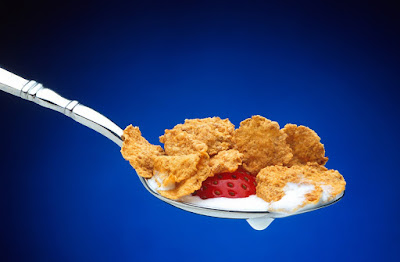 |
| Why Increasing Dietary Fiber Can Help You Lose Weight image courtesy of Pixabay |
Why Increasing Dietary Fiber Can Help You Lose Weight
Dietary fiber helps you feel full faster and that sense of satisfaction lasts for a longer period of time, so by reducing your hunger, it helps you eat less, and you don't feel deprived or like you're missing out on anything.
What Is Dietary Fiber?
Fiber is a carb, but it's not like the starchy carbs in potato chips or pasta that pack on the pounds quickly. It tends to be crunchy, making it satisfying to chew, and it's more like the firm outer part of fruits and veggies, the parts you might have peeled off and thrown away, like apple peels and potato skins.How Much Fiber Do You Need in Your Diet Each Day to Lose Weight?
While you should ideally discuss this detail with a nutritionist or your doctor, here's what I found when researching:- 25 grams per day for women
- 38 grams per day for men
These are the figures cited by WebMD for women under 50 and for all men, and it is noted that some experts recommend even larger doses of daily dietary fiber for weight loss.
- No recommendations were offered for women over 50, and I wondered if your body weight would also influence how much you should ingest, but I didn't find any better info on it, so for me, I am experimenting - starting with 25 grams daily as a goal and will increase or decrease based on how I feel.
- As I write this, I'm eating a lunch I crafted solely in the basis of its fiber content - Peanut Butter and Chia Seed.
- I mixed 2 tablespoons of natural peanut butter and two tablespoons of chia seed for a lunch that packs 12 grams of fiber and 10 grams of protein.
- It didn't look like much when I started eating, and I thought I needed bread or crackers or some celery, but I am eating it right off the spoon without any of that, and I'm full enough I'm having a hard time finishing it.
What Foods Are High in Fiber?
Fruits, veggies, and whole grains are all rich in fiber.
- Berries are one type of fruit that's extra high in fiber.
- Nuts are also good on fiber content and add protein, too.
- Legumes, like soup beans are high in both fiber and protein.
- One of my favorite ways to add fiber to foods that are low in it is to mix in chia seeds, like I did with my peanut butter today.
- Chia has very little to no flavor, so you can use it to add fiber to anything without messing up the taste.
- Plus, you can use it crunchy and whole, grind it up so it's fine, you can soak it so it's soft like tapioca, or you can use it in cooking to thicken soups, sauces, and gravies.
- Chia seed is a very flexible fiber source, and it delivers its fiber and other nutritional benefits while letting you fully enjoy your food.
- Flax seed - you can use this whole in baking or, like chia seed, you can grind it to sprinkle on or in other foods.
- Chia has very little to no flavor, so you can use it to add fiber to anything without messing up the taste.
- Plus, you can use it crunchy and whole, grind it up so it's fine, you can soak it so it's soft like tapioca, or you can use it in cooking to thicken soups, sauces, and gravies.
- Chia seed is a very flexible fiber source, and it delivers its fiber and other nutritional benefits while letting you fully enjoy your food.
Are There Nutritional Supplements I Can Take Instead of Eating Fiber-Rich Foods?
If you have a hard time eating enough fiber-rich food each day, but want to gain its weight-loss boost and health benefits, you can also add fiber to your diet with supplements.Fiber supplements are sold under names like Metamucil and Benefiber, or under the more generic name of Psyllium Fiber.
I also found information on dietary fiber reducing the risk of heart attack and some cancers, if you would like the links to that info, just leave a comment below and I'll share more on that.Laure J
No comments:
Post a Comment